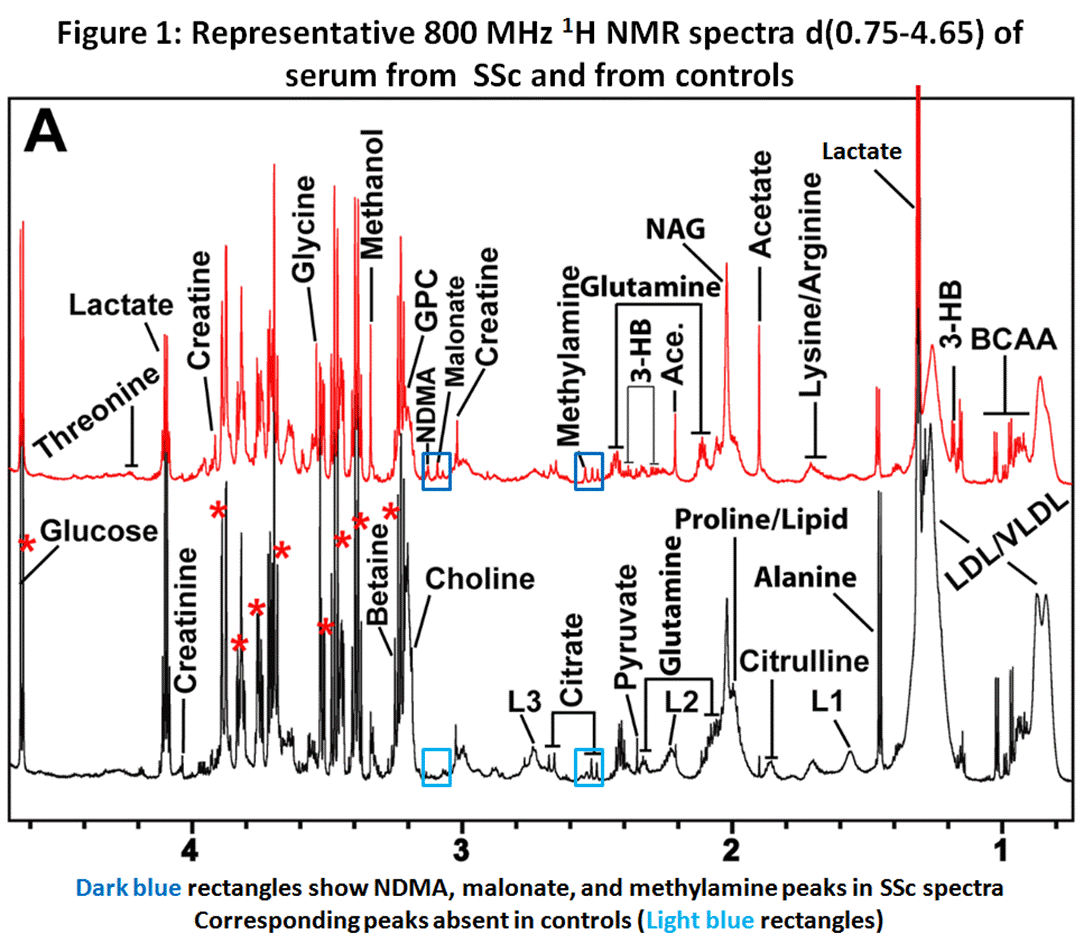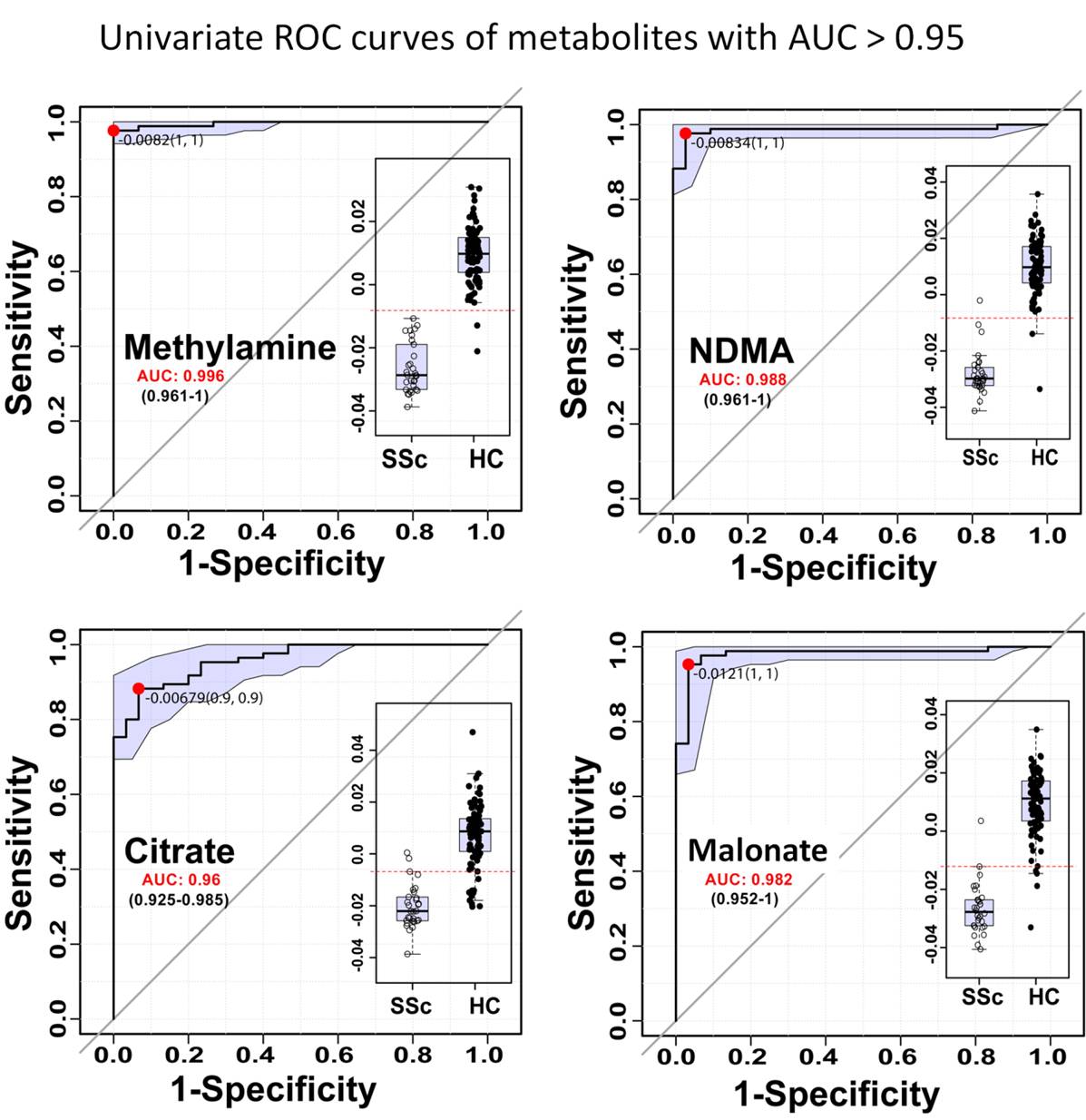Session Information
Date: Monday, November 6, 2017
Session Type: ACR Poster Session B
Session Time: 9:00AM-11:00AM
Background/Purpose:
Proton based Nuclear Magnetic Resonance (1H NMR) can identify concentration of hundreds of small molecules in body fluids. A hypothesis-free approach was used to analyze metabolic perturbations in sera of Systemic Sclerosis (SSc) to identify potential biomarkers of the disease.
Methods:
Sera from 87 patients meeting ACR 1980 criteria for Systemic Sclerosis, and 40 age and sex similar controls, was analyzed using 1H NMR spectroscopy coupled with multivariate statistical analysis.
Results:
There was clear distinction between SSc and healthy controls on Partial Least Square-Discriminate Analysis (PLS-DA) [R2= 0.98]. Several metabolites of discriminatory relevance were identified, and further evaluated using analysis of variance (ANOVA) and Receiver Operator Curve (ROC) analysis. Methylamine, nitrosodimethylamine (NDMA), citrate and malonate were 4 metabolites that had maximum area under curve (AUC> 0.95) in distinguishing SSc from controls [Figure 2]. Methylamine and NDMA were uniformly elevated almost exclusively in SSc patients. Figure 3 shows Orthogonal PLS-DA of limited versus diffuse disease; or patients with or without interstitial lung disease (ILD).
Conclusion:
H1 NMR based metabolomics identified metabolites that have high discriminate value for SSc. The potential of these molecules as biomarkers, or their possible roles in disease pathogenesis need to be explored.
To cite this abstract in AMA style:
Ahmed S, Rai MK, Dubey D, Rawat A, Kumar D, Misra DP, Agarwal V. Nuclear Magnetic Resonance Based Metabolomics Study Identifies Highly Discriminatory Metabolites in 87 Systemic Sclerosis Patients [abstract]. Arthritis Rheumatol. 2017; 69 (suppl 10). https://acrabstracts.org/abstract/nuclear-magnetic-resonance-based-metabolomics-study-identifies-highly-discriminatory-metabolites-in-87-systemic-sclerosis-patients/. Accessed .« Back to 2017 ACR/ARHP Annual Meeting
ACR Meeting Abstracts - https://acrabstracts.org/abstract/nuclear-magnetic-resonance-based-metabolomics-study-identifies-highly-discriminatory-metabolites-in-87-systemic-sclerosis-patients/



